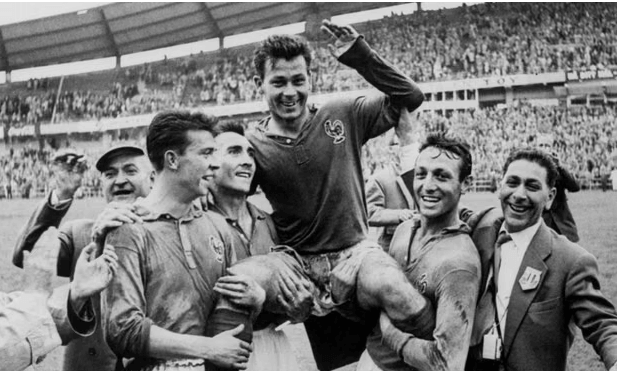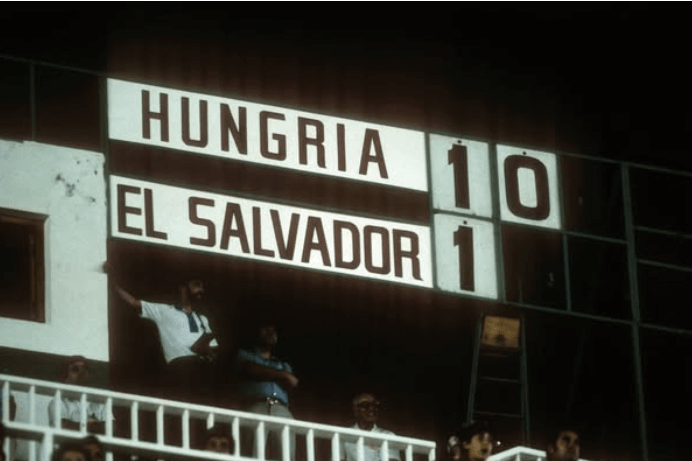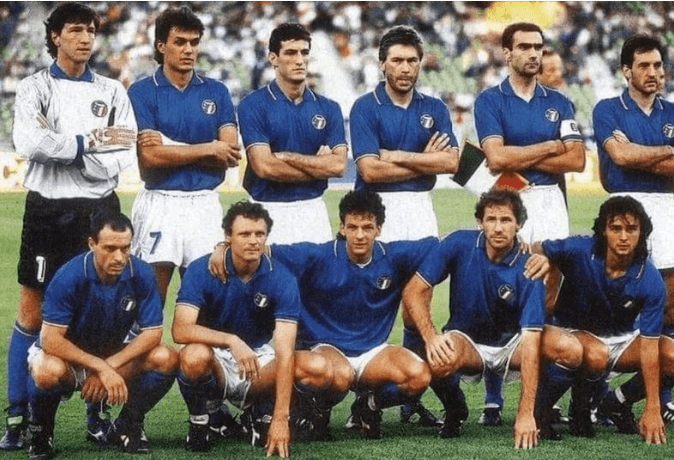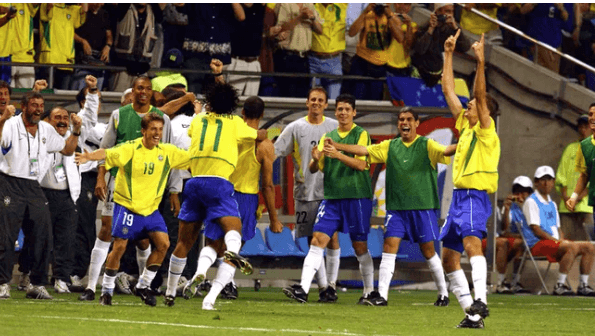The top 10 FIFA World Cup records feature legendary players and teams that have set records that have stood the test of time.
From Pelé to Just Fontaine and Miroslav Klose, these milestones capture the essence of football’s grandest competition.
Whether it’s goal-scoring feats, appearances, or unbeaten streaks, each record tells a story of brilliance and endurance.
These special moments celebrate the World Cup’s unshakeable milestones and timeless legends of this beautiful sport well into the 2026 edition’s schedule and fixtures.
Discover why these milestones remain relevant and why future generations may struggle to match them.
Visit our FIFA World Cup 2026 website for more football news and updates about the 2026 qualifiers.

| Player/Team | World Cup edition(s) | Record | Amount |
|---|---|---|---|
| Just Fontaine | 1958 | Most goals in a single FIFA World Cup tournament | 13 goals |
| Miroslav Klose | 2014 | Most goals in FIFA World Cup history | 16 goals |
| Pele | 1958 | Youngest World Cup winner | 17 years old |
| Lothar Matthaus | 1982-1998 | Most World Cup matches played | 25 matches |
| Cafu | 1994, 1998, 2002 | Most World Cup final appearances | 3 finals |
| Hakan Sukur | 2002 | Fastest goal in World Cup history | 11 seconds into match (Turkey vs South Korea) |
| Norman Whiteside | 1982 | Youngest player to appear at World Cup | 17 years, 41 days |
| Brazil | 1958, 1962, 1970, 1994, 2002 | Most World Cup titles | 5 titles |
| Hungary | 1982 | Most lopsided win in World Cup history | 10-1 score vs El Salvador |
| Italy | 1990 | Most consecutive clean sheets in World Cup | 5 clean sheet |
1. Just Fontaine: Most goals in a single World Cup (13 goals)
Just Fontaine set a record in the 1958 World Cup, scoring 13 goals in a single tournament, a feat that remains a standout among football fans.
The French striker’s total came in just six matches, averaging two goals per game—an achievement that’s considered unimaginable in the current football climate.
What makes this record possibly difficult to top is that modern tournaments feature tighter defenses, advanced tactical systems, and greater parity among teams.
Fontaine’s blistering form in 1958 is a product of a unique era where attacking play flourished and defenses were less organized.
His incredible goal run remains untouchable, a shining example of how one player’s brilliance can define an entire World Cup.

2. Miroslav Klose: Most goals in World Cup history (16 goals)
Miroslav Klose cemented his place as one of the greatest players in World Cup history by scoring 16 goals across four tournaments (2002-2014).
The German striker, who was born in Opole, Poland, surpassed Brazil’s Ronaldo (15 goals) during the 2014 World Cup in Brazil, a tournament he also helped Germany win.
What makes this record special is the sheer consistency and longevity it requires for a player. A player would need to compete at the highest level in at least three or four tournaments while maintaining peak form.
Although players like Lionel Messi, Cristiano Ronaldo, and Neymar have come close, they’ve fallen short.
With shorter international careers and greater physical demands, it would be challenging to eclipse Klose’s 16-goal milestone, ensuring his record remains one of football’s most iconic achievements.
With shorter international careers and greater physical demands, it would be tough to eclipse Klose’s 16-goal milestone, ensuring his record could stay as one of football’s most iconic achievements.
See also:
- FIFA World Cup Hospitality packages revealed
- World Cup 2026 tickets guide: How and when to buy
- Mexico City braces for 5 million visitors for 2026 World Cup
- FIFA World Cup 2026 poster from Toronto-based artist unveiled
- FIFA stadium to have covered roof against heat concerns: Infantino
- FIFA World Cup 2026 could be ‘most climate damaging’: report

3. Pele: Youngest World Cup winner (17 years old, 1958)
Pele made his much-anticipated debut at the 1958 World Cup, and it was the stuff of legend. At just 17 years old, the Brazilian forward led his nation to its first-ever World Cup title.
He scored six goals, including a hat-trick in their semifinal against France and a brace in the final against Sweden, instantly becoming a global sensation.
The odds of this record ever being broken are slim, as modern football places immense importance on experience, physical maturity, and mental resilience.
For a 17-year-old not only to play but to dominate and win the World Cup is nearly unthinkable in the current football landscape.
His achievement remains a timeless symbol of football’s magic and the impossible heights one prodigy can reach.
4. Lothar Matthaus: Most World Cup matches played (25 games)
Lothar Matthaus holds the distinction of registering the most World Cup appearances with 25 games between 1982 and 1998.
The German midfielder and sweeper took part in five World Cups, leading West Germany to victory in 1990 and appearing in two finals.
With modern training demands, injuries, and the increased competitiveness of national squads, it’s unlikely the current crop of players will enjoy careers spanning five consecutive tournaments.
Some modern players, such as Lionel Messi and Cristiano Ronaldo, have come close, but neither has achieved 25 appearances.
Matthaus’s blend of talent, fitness, and longevity set a standard that few, if any, will ever match again.

5. Cafu: Most World Cup final appearances (3 finals)
Cafu achieved what no other player has managed: appearing in three consecutive World Cup finals in 1994, 1998, and 2002 editions.
Also known as Marcos Evangelista de Morais, he lifted the trophy twice, in 1994 and 2002.
The Brazilian right-back achieved this with the consistent competitiveness of Brazil’s national team and individual excellence, making this record a tough act to follow.
With more countries capable of winning it all, this record may seem untouchable in the current football landscape.
Cafu’s record is a testament not only to his skill but also to Brazil’s golden generation, making its case as one of the most unassailable records in football history.
6. Hakan Sukur: Fastest goal in World Cup history (11 seconds)
Hakan Sukur stunned South Korea by scoring just 11seconds after kickoff, setting the record for the fastest goal in World Cup history.
The Turkish striker, also known as the “Bull of the Bosphorus,” converted the lightning goal in the third-place playoff and remains one of the tournament’s most memorable moments.
Breaking this record may require a lot of good luck and the right timing. Scoring within 11 seconds required the perfect execution from kickoff and defensive lapses by the opponent.
With modern teams meticulously drilled defensively from the first whistle, such a scenario is almost impossible to replicate.
Sukur’s lightning strike is a reminder of football’s unpredictability and the magic of the World Cup.
Sukur’s lightning strike is a reminder of football’s unpredictability and the magic of the World Cup.

7. Norman Whiteside: Youngest player to appear at a World Cup (17 years, 41 days, 1982)
Norman White made history at the 1982 World Cup by becoming the youngest player to ever appear in the tournament at 17 years and 41 days.
The Northern Ireland midfielder and striker made his debut against Yugoslavia, thus breaking Pelé’s previous record.
With stricter eligibility rules, stronger youth development pathways, and more experienced squads, managers rarely pick players under 18 for such a high-pressure competition.
Additionally, FIFA regulations also limit the chances of younger players being fast-tracked into senior national squads.
Whiteside’s record has stood for over four decades and shows no signs of being challenged.
8. Brazil: Most FIFA World Cup titles (5 championships)
Brazil’s dominance in World Cup history is unmatched, with five championships to its name (1958, 1962, 1970, 1994, and 2002).
The Selecao remains the only club to have appeared in every single World Cup since its inception in 1930.
In the current competitive era, it’s incredibly difficult for one country to maintain such dominance.
As the World Cup celebrates the passing from one gracious host to another through the years, no team has come close to surpassing Brazil’s title collection.
Brazil’s greatness represents a legacy of talent, flair, and consistency that defined the sport for decades and continues to inspire new generations of footballers worldwide.

9. Hungary: Biggest win in World Cup history (10-1 score vs El Salvador, 1982)
Hungary holds the record for the largest margin of victory in World Cup history, defeating El Salvador, 10-1, during the 1982 tournament.
A team scoring in double digits in a World Cup match is almost unthinkable in the current football landscape.
The quality gap between nations has narrowed significantly, with the “smaller” football nations now producing pro players competing in top leagues worldwide.
This historic domination of Hungary reflects a bygone era when disparities were greater.
It’s more than certain that no team will ever score more than 10 goals in a single World Cup match again, cementing Hungary’s place in football history.

10. Italy: Most consecutive clean sheets in a World Cup (5 in 1990)
Italy’s defense was nearly impenetrable during the 1990 World Cup, posting five straight clean sheets before conceding a goal in the semifinal against Argentina.
The Azzurri, led by goalkeeper Walter Zenga, set a defensive benchmark that remains unmatched to this day.
With emphasis on attacking play, high pressing, and VAR favoring offensive decisions, teams imposing defensive dominance would be unlikely.
Italy’s defensive run in 1990 is a testament to discipline, tactical organization, and Zenga’s overall brilliance.
More than 30 years later, no team has come close to matching this record of five consecutive clean sheets, ensuring it has withstood the test of time.

FIFA World Cup records an ultimate celebration of legacy
These FIFA World Cup records will always remind fans of countless moments of drama and brilliance, as well as extraordinary feats.
From Klose’s unmatched goal-scoring to Fontaine’s single-tournament heroics and Pele’s teenage triumph, these achievements reflect football’s rich history.
As football evolved with new stars and modern tactics heading to the 2026 edition co-hosted by the United States, Canada, and Mexico, these records stand as reminders of the sport’s timeless appeal.
Whether you’re a casual fan or a die-hard football fanatic, these unbreakable records show why the FIFA World Cup remains the ultimate celebration of this universal sport.

